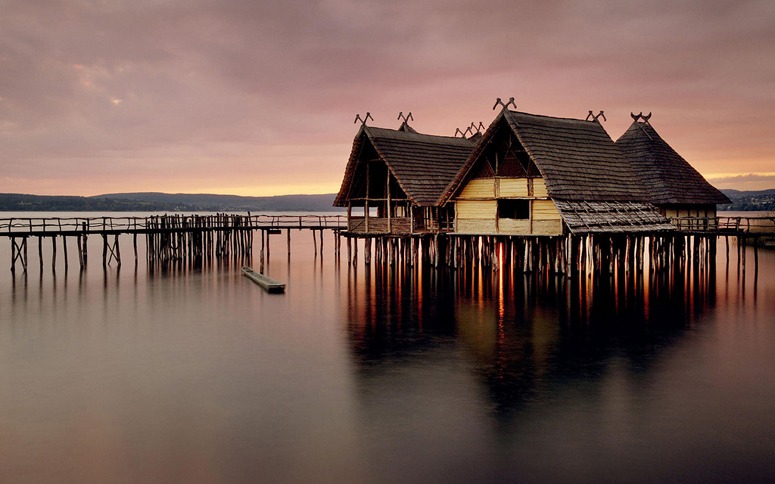Pompeii would be in much better condition today if had never been excavated – and the same is true of a great many archaeological sites. Too many archaeologists are paid to publish papers or to support the tourist industry. They talk about conservation, endlessly, but they do far more good than harm. Since garden archaeologists have so few ancient gardens to damage, they should set an example to the archaeological profession by making reconstructions of ancient gardens. Images, text and digital reconstructions are all useful but nothing is as good as a 1:1 reconstruction near, but never on, the archaeological remains. The lake dwellings in the above photographs are reconstructions of dwellings from the Bronze and Stone Ages. (at the Pfahlbau Museum Unteruhldingen, Germany). Image courtesy Derek


The photograph above makes living in Bronze Age Germany seem akin to a resort lifestyle! It is a very beautiful setting, but the lifestyle demands may have been not quite so idyllic?
The old view was that Stone Age life was ‘nasty, brutal and short’. The current view is that it was much better than the Neolithic lifestyle. Genesis 3:19 puts it this way: “In the sweat of thy face shalt thou eat bread, till thou return unto the ground; for out of it wast thou taken: for dust thou art, and unto dust shalt thou return.” Bronze Age Europe may have had the best of both worlds: constant availability of meat and fish with enough grain to make, should one wish it, a hamburger.
I am not sure whether the burial mound found near Halle illustrates violence based on intra or inter clan rivalry? [ http://www.mg.co.za/article/2005-05-30-mutilated-bronze-age-lord-found-in-germany ]
Excavations at a Bronze Age site similar to Stonehenge (but constructed of wood) have unearthed some interesting facts on life during this period of history. During the Bronze Age trade was developing based on ore, amber and salt. [ http://www.spiegel.de/international/germany/0,1518,568738,00.html ]
No doubt there was much fighting – but the men may well have enjoyed it. One remember’s General Patton’s regret at the end of the First World War: he loved blod, guts and war.